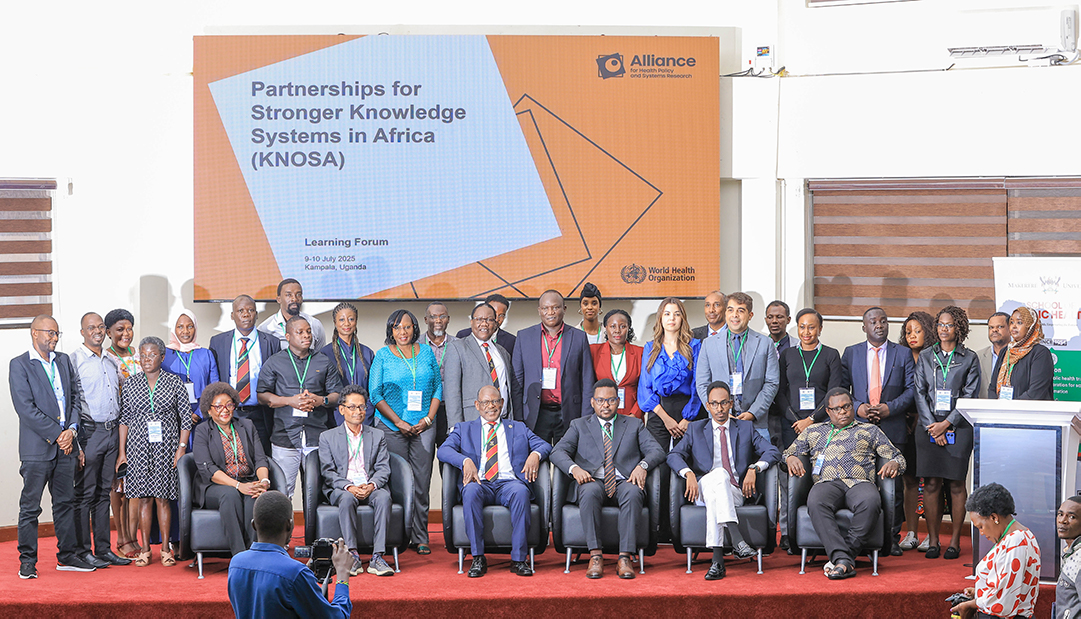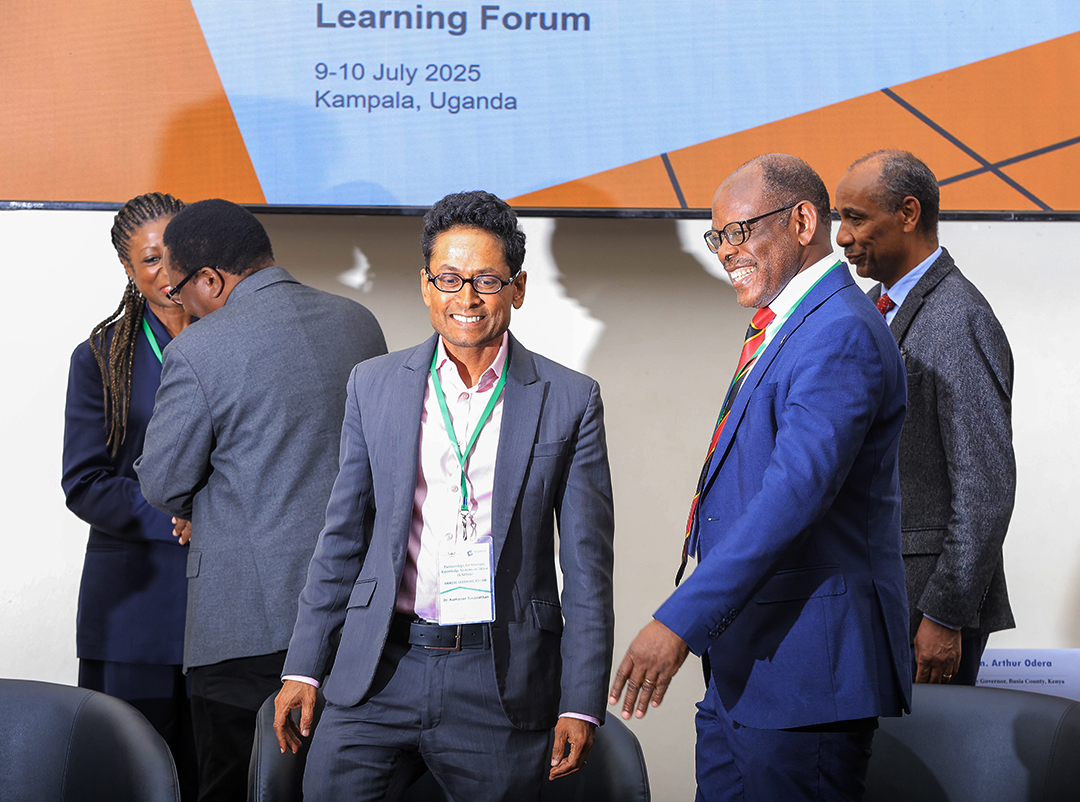KAMPALA, July 9, 2025 — Makerere University has been hailed as a continental and global leader in health policy and systems research. This recognition came during the Partnerships for Stronger Knowledge Systems in Africa (KNOSA) Learning Forum, held July 8–10, 2025, hosted by Makerere University School of Public Health (MakSPH) with support from the WHO Alliance for Health Policy and Systems Research.
Delegates from Uganda, Kenya, Ethiopia, and Somalia applauded Makerere’s role in advancing evidence-informed policymaking and strengthening national knowledge systems. The forum highlighted the institution’s trusted leadership, practical research, and commitment to driving real change.
Dr. Kumanan Rasanathan, Executive Director of the WHO Alliance, praised Makerere’s long-standing role in bridging research and policy:
“You are a shining beacon on the continent and for the world,” he said. “In this moment of crisis, where every health investment must be efficient and equitable, Makerere’s leadership matters more than ever.”
He emphasized the Alliance’s 25-year partnership with Makerere: “We know Makerere University very well. My predecessors have worked with the Alliance since its inception in the 1990s. Makerere has been especially instrumental in advancing the field of health policy and systems.”
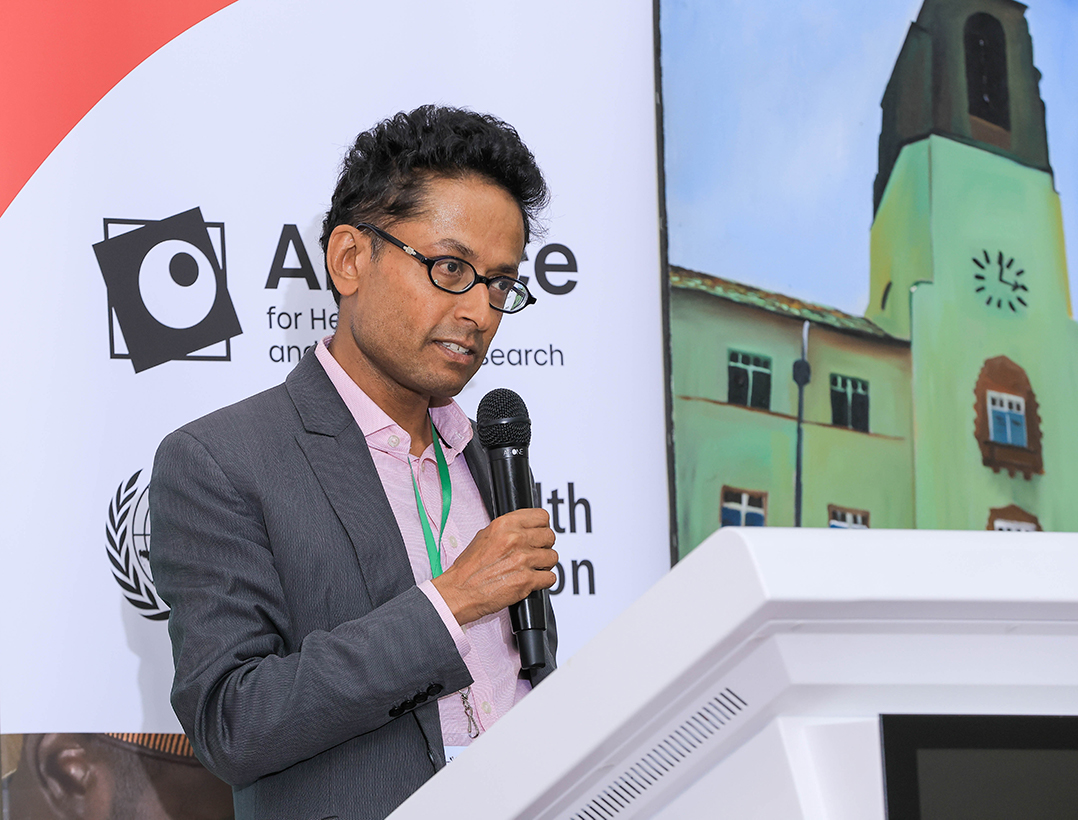
Dr. Rasanathan called for a move away from siloed approaches toward more adaptive, coherent systems. He reaffirmed WHO’s commitment to supporting regional initiatives like KNOSA that are driving this shift across Africa.
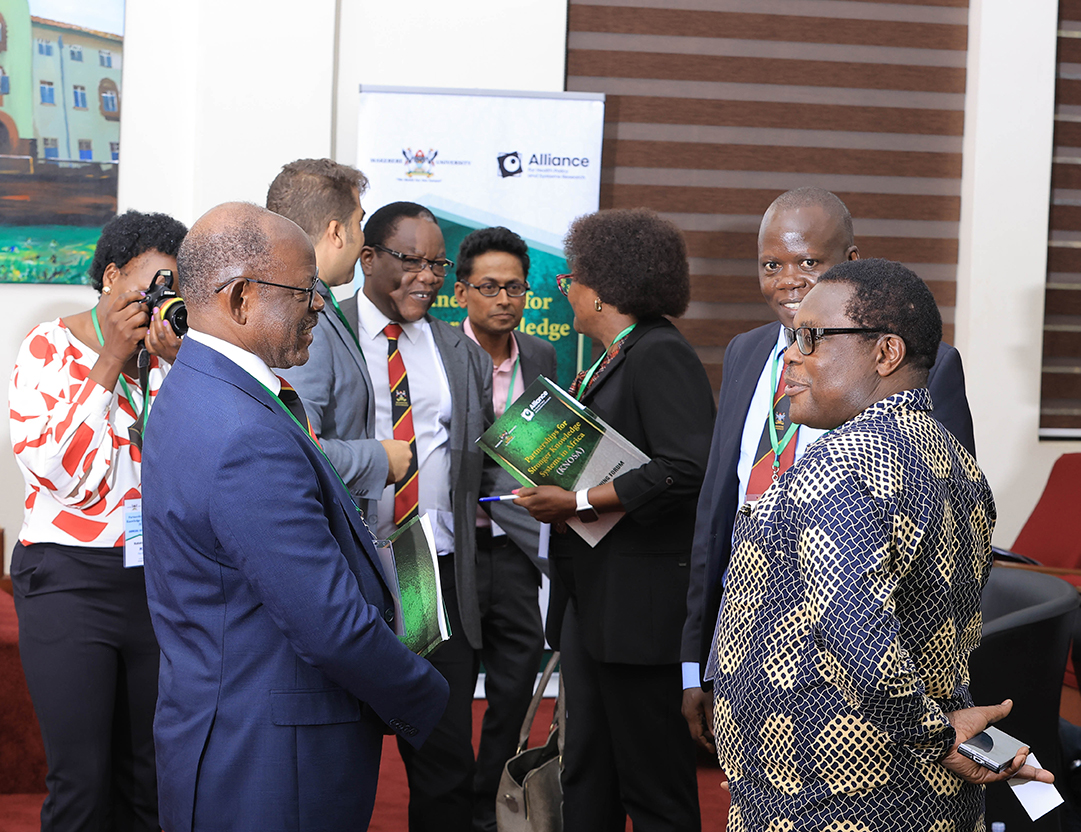
In the face of current funding cuts, Dr. Christine Musanhu of the WHO Uganda Country Office echoed these sentiments with a stern call to action: “In times of uncertainty, we need national systems that not only generate evidence but also understand and communicate it in ways that drive real change.”
She warned of tightening budgets, citing an 11% cut (roughly $67 million) in global funding for Uganda’s public health programs. “We are being asked to do more with less,” she said, urging countries to reprogram resources towards high-impact, evidence-based interventions.
Adding that, “Evidence must go beyond routine data—it is a measure of transformation.”
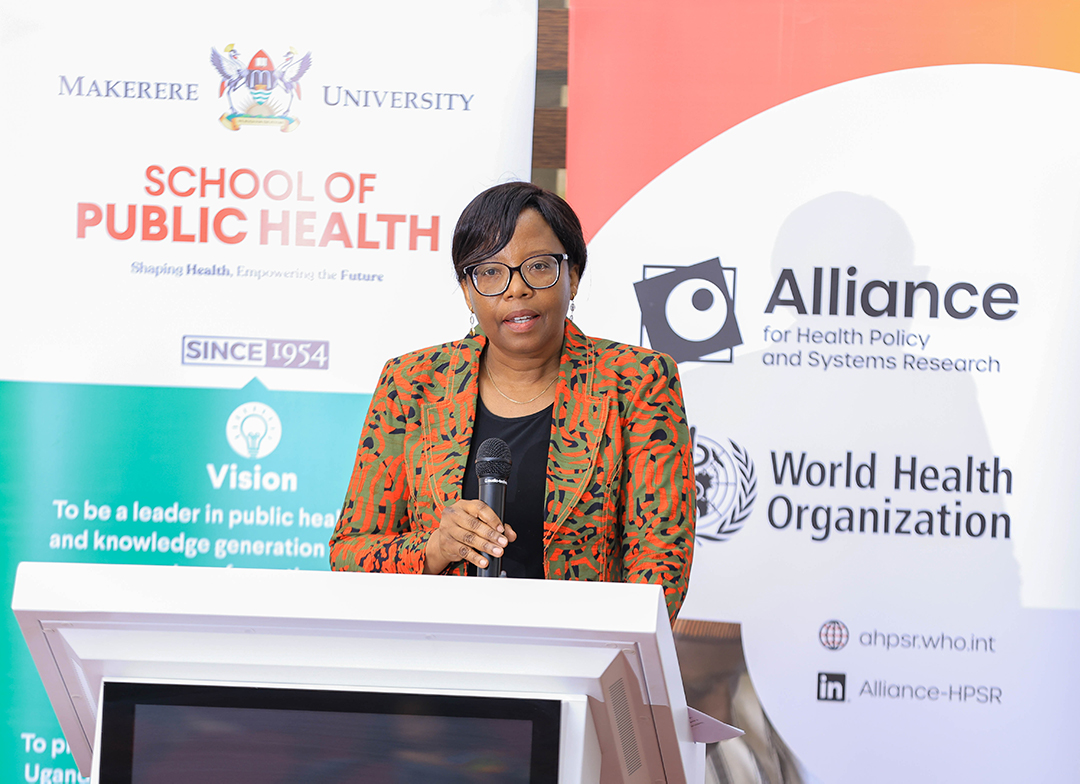
This year’s KNOSA forum focused on sharing country-level progress, refining evaluation approaches, enhancing communication products, including scientific publications, and engaging more deliberately with Uganda’s wider policy and research ecosystem.
Makerere University Vice Chancellor Prof. Barnabas Nawangwe, while sharing the institutional vision, called for African universities to lead from the front in addressing health and development challenges: “We can do all the research in the world, but unless it moves beyond our laptops and lecture rooms into real decision-making spaces, it won’t change lives.”
He noted that Makerere contributes over 80% of Uganda’s academic output and praised MakSPH and the College of Health Sciences (MakCHS) for innovations that have shaped responses to HIV, Ebola, and COVID-19. “Our work, backed by partnerships with government and global collaborators, is proof that African universities must lead from the front.”
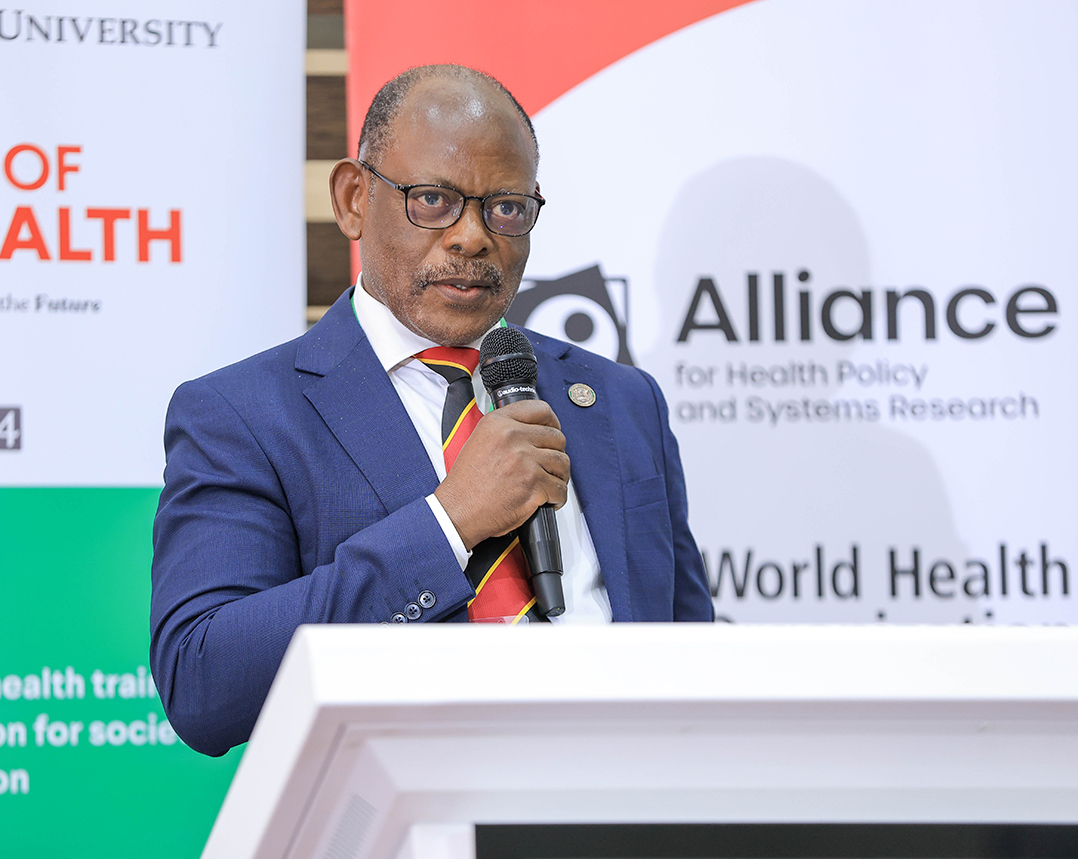
Professor Nawangwe urged deeper collaboration within KNOSA: “Our continent is interconnected. We cannot afford to work in silos. We are stronger together.”
Dr. Aku Kwamie, the unit head at the WHO-Alliance, noted that there is a need for partners to shift their thinking regarding policy. She particularly shared three critical transitions to institutionalize evidence use: embedding knowledge within institutions, not just individuals; linking research directly to decision-making; and advancing from isolated academic work to system-level thinking. These shifts, she noted, are essential for embedding evidence into routine governance.
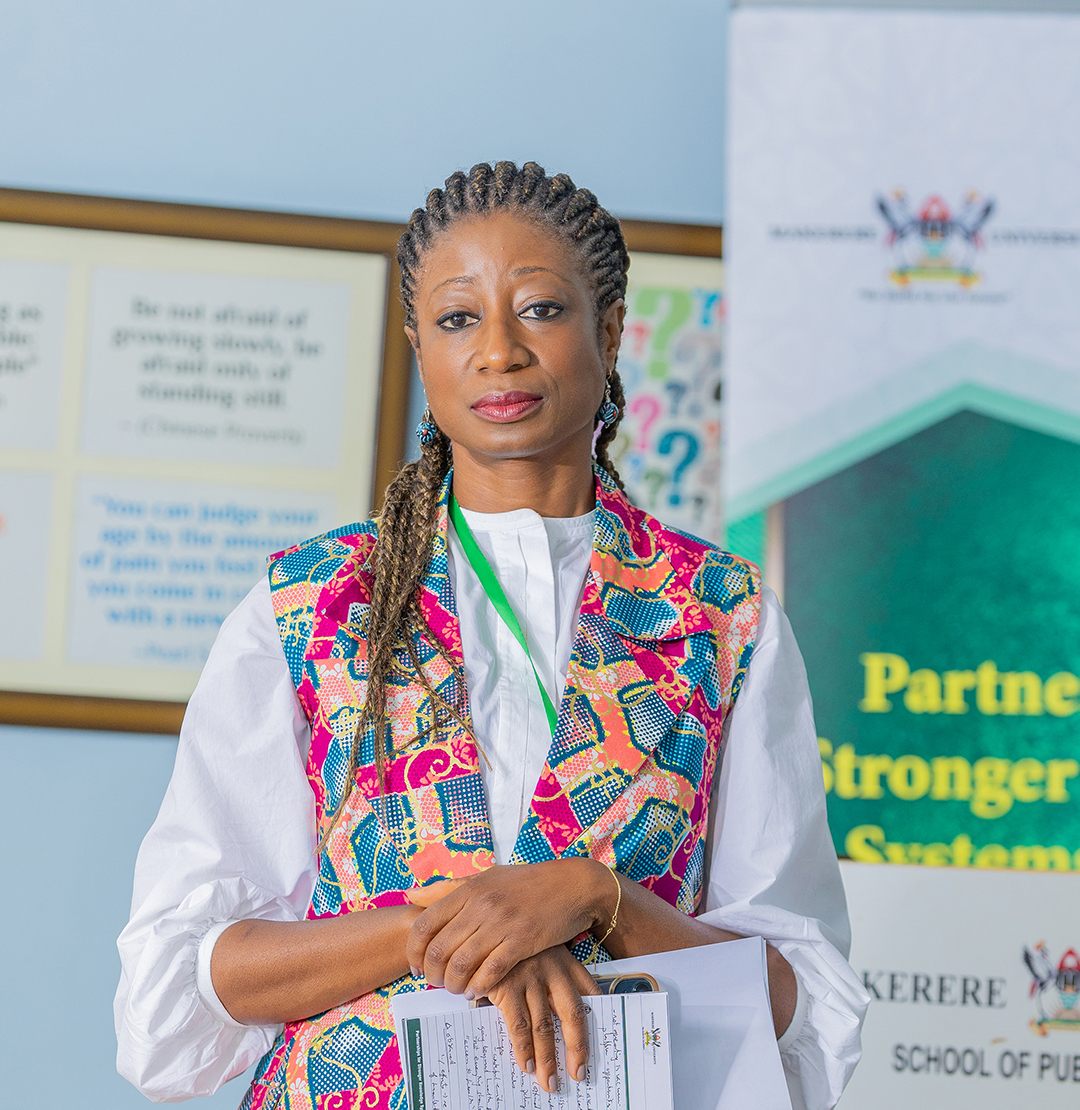
Professor Freddie Ssengooba, a Health Policy and Knowledge Systems expert at MakSPH, reaffirmed Makerere University’s regional leadership in the field and stressed the urgency for African countries to take full ownership of their health systems considering the shifting funding landscape:
“Health policy and knowledge systems research may not be as prominent as epidemiology or disease control,” he said, “but it’s central to how we harvest and connect knowledge with policy and resources. When the vaccine is here and the evidence is clear, that’s when they come to us, asking, “How do we achieve over 80% coverage?”
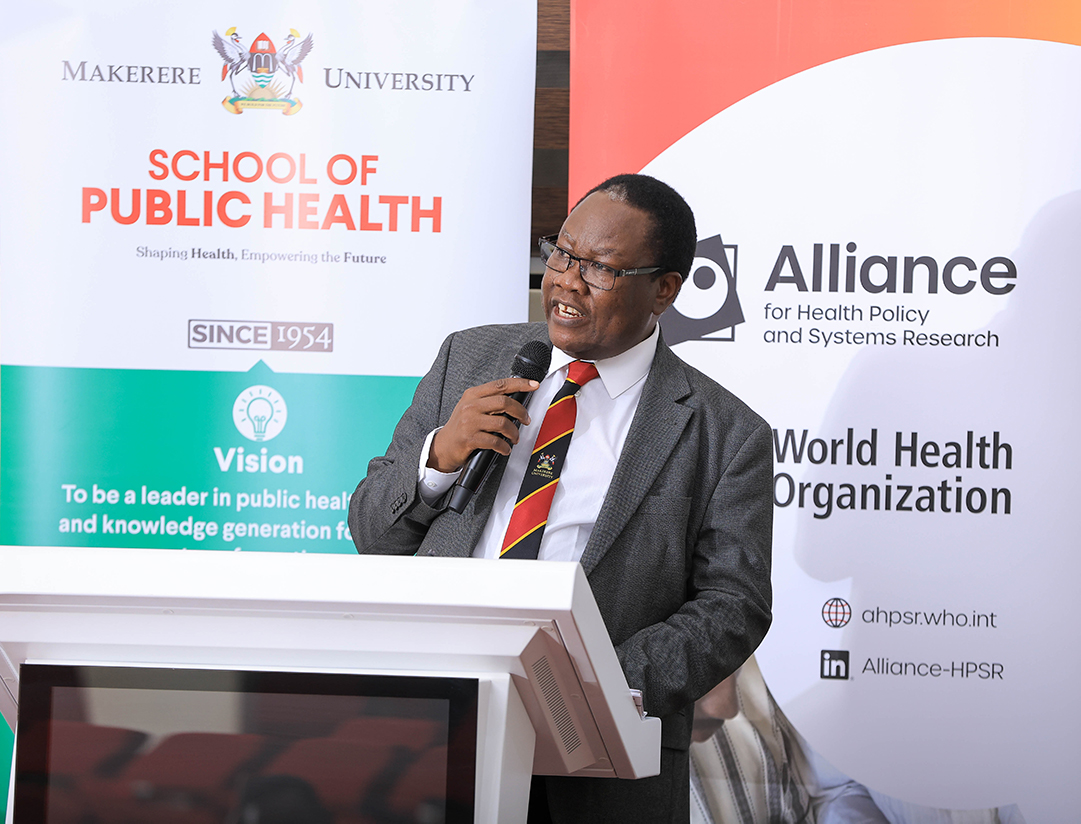
He praised KNOSA for helping elevate the field’s relevance: “There’s real appreciation for the work we do—not just with Uganda’s Ministry of Health, but across the region.”
Recalling the early collaboration with WHO, he said, “Back in 1997–98, a few of us, myself included, responded to an initial call and began what has now become a long-standing relationship with the WHO Alliance.”
“The Alliance is building capacity across Africa to ensure that research doesn’t stop at findings but goes on to shape decision-making and society,” he disclosed.
Professor Rhoda Wanyenze, the Dean of MakSPH, is currently ambitiously driving her colleagues, staff, and partners to embrace the culture of evidence use. She reiterated the School’s commitment to leading in evidence translation: “I’ve often told the Vice Chancellor—we at the School of Public Health are not in an ivory tower. We are deeply connected to real-world problems.”
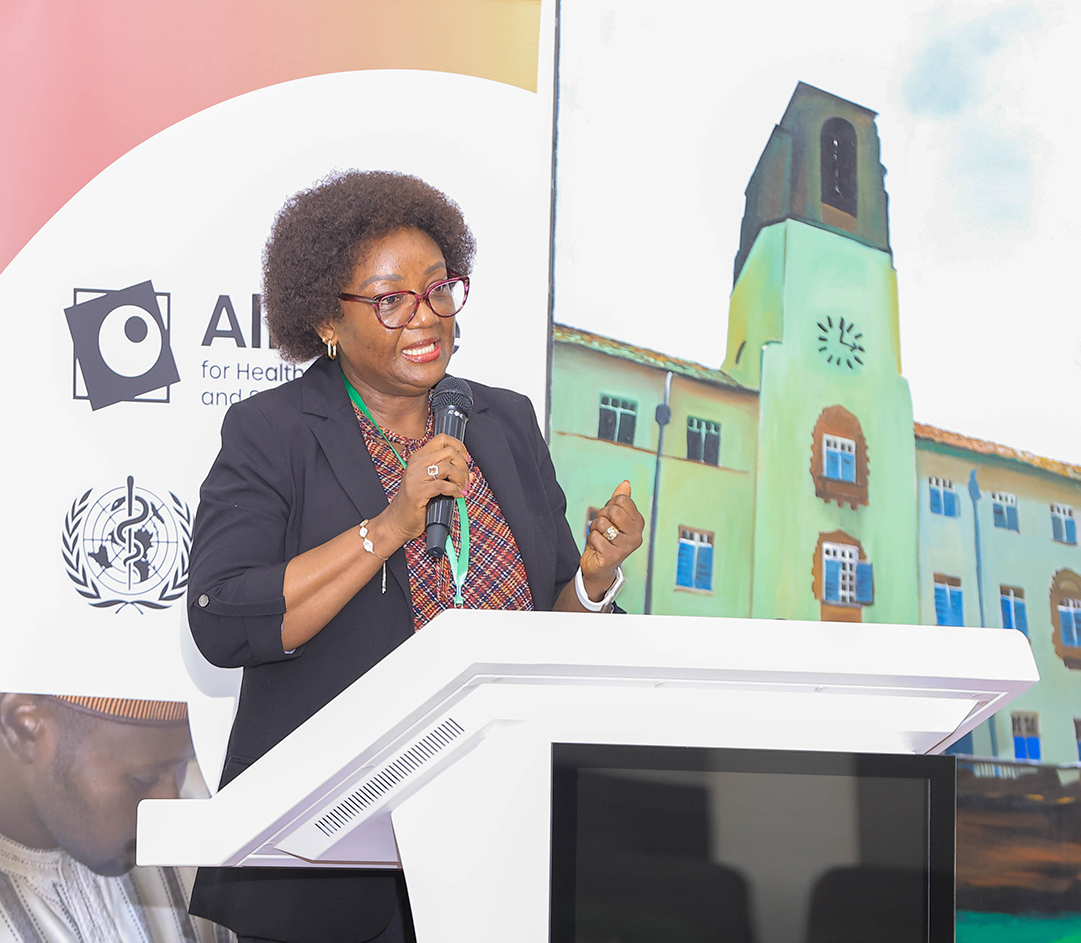
To her, the need for a clear framework to improve engagement with decision-makers and address uneven success in research translation has never been greater than now: “Yes, we publish in high-impact journals. But the question is, what change happened because of your evidence?”
“I would love to see the School lead in developing a framework that showcases what we’ve done well and identifies where we can grow.”
She also acknowledged Prof. Ssengooba’s influence in broadening the lens on knowledge management: “You’ve challenged us to think beyond institutions, to consider networks and systems. That’s a gap we must fill.”
